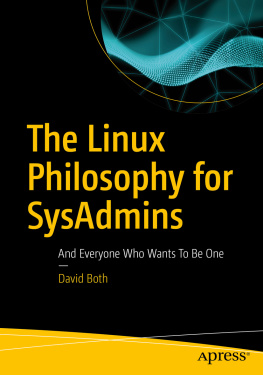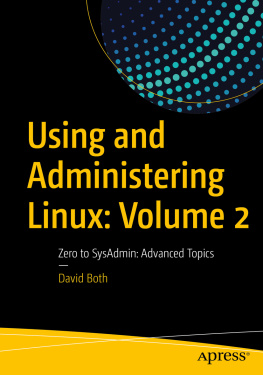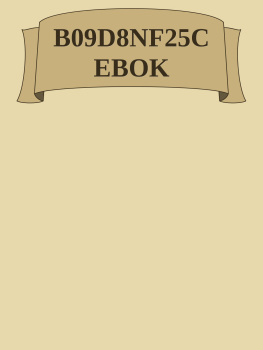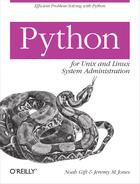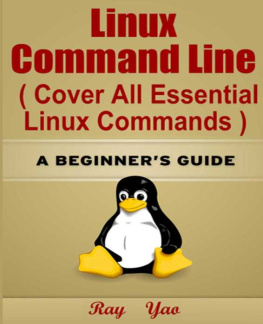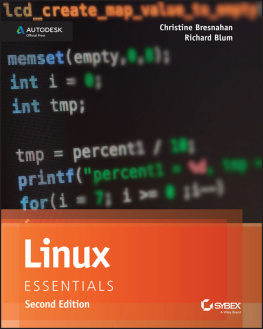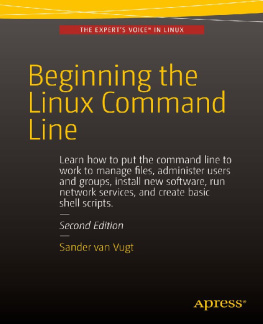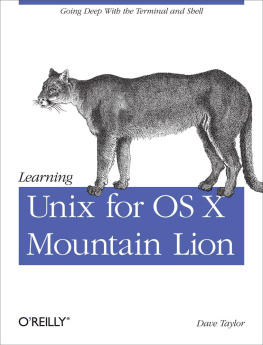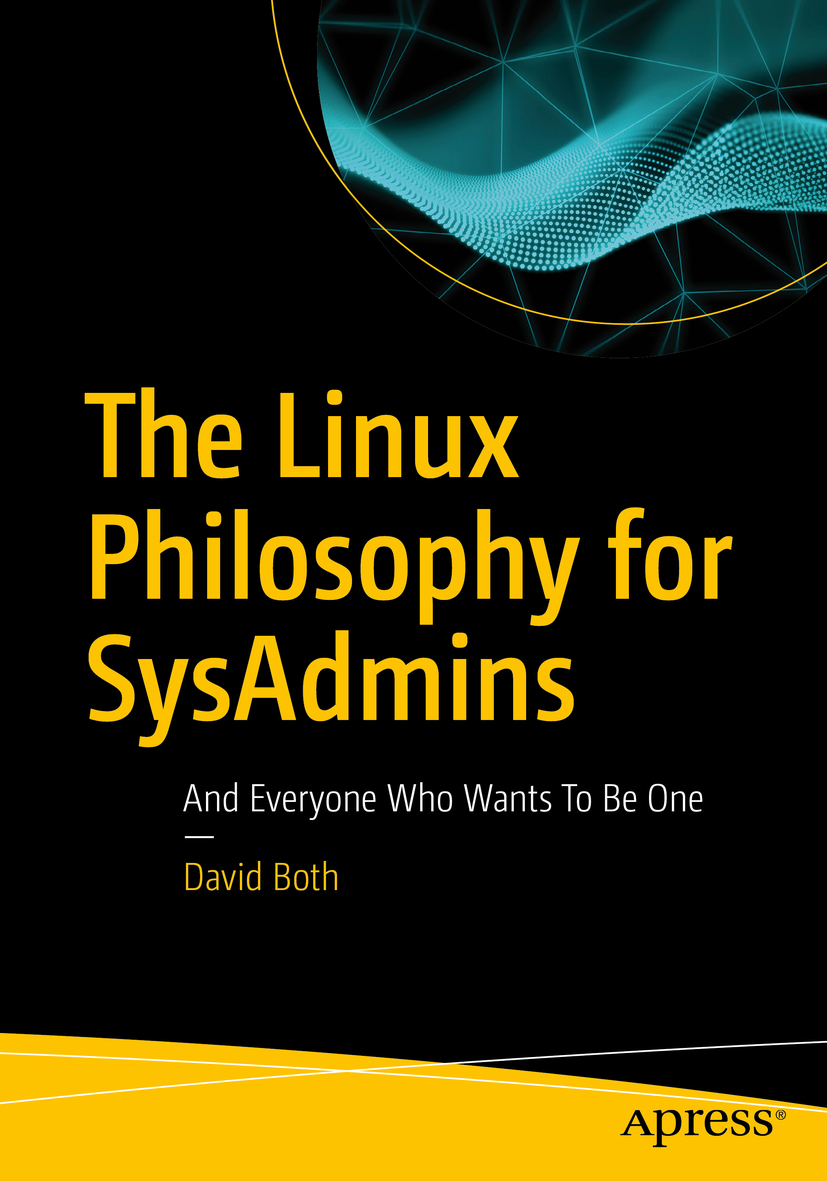David Both - The Linux Philosophy for SysAdmins: And Everyone Who Wants to Be One
Here you can read online David Both - The Linux Philosophy for SysAdmins: And Everyone Who Wants to Be One full text of the book (entire story) in english for free. Download pdf and epub, get meaning, cover and reviews about this ebook. year: 2018, publisher: Apress, genre: Computer. Description of the work, (preface) as well as reviews are available. Best literature library LitArk.com created for fans of good reading and offers a wide selection of genres:
Romance novel
Science fiction
Adventure
Detective
Science
History
Home and family
Prose
Art
Politics
Computer
Non-fiction
Religion
Business
Children
Humor
Choose a favorite category and find really read worthwhile books. Enjoy immersion in the world of imagination, feel the emotions of the characters or learn something new for yourself, make an fascinating discovery.
- Book:The Linux Philosophy for SysAdmins: And Everyone Who Wants to Be One
- Author:
- Publisher:Apress
- Genre:
- Year:2018
- Rating:4 / 5
- Favourites:Add to favourites
- Your mark:
The Linux Philosophy for SysAdmins: And Everyone Who Wants to Be One: summary, description and annotation
We offer to read an annotation, description, summary or preface (depends on what the author of the book "The Linux Philosophy for SysAdmins: And Everyone Who Wants to Be One" wrote himself). If you haven't found the necessary information about the book — write in the comments, we will try to find it.
Reveals and illustrates the awesome power and flexibility of the command line, and the design and usage philosophies that support those traits. This understanding of how to extract the most from the Linux command line can help you become a better SysAdmin. Understand why many things in the Linux and Unix worlds are done as they are, and how to apply the Linux Philosophy to working as a SysAdmin.
The original Unix/Linux Philosophy presented foundational and functional tenets - rules, guidelines, and procedural methods - that worked well. However, it was intended for the developers of those operating systems. Although System Administrators could apply many of the tenets to their daily work, many important tenets were missing.
Over the years that David Both has been working with Linux and Unix, he has formulated his own philosophy one which applies more directly to the everyday life of the System Administrator. This book defines a philosophy, and then illuminates the practical aspects of that philosophy with real-world experiments you can perform. Inspired by Davids real mentors, and dedicated to them, The Linux Philosophy for System Administrators is a mentor to SysAdmins everywhere; remember - If you fail you learn.
What You Will Learn
Apply the Linux philosophy to working as a SysAdmin
Unlock the power of the knowledge you already have
Fully understand and access the vast power of the command line
Review the power of Linux as a function of the philosophies that built it
Who This Book Is For
If you want to learn the secrets that make the best Linux SysAdmins powerful far beyond that of mere mortals; if you want to understand the concepts that unlock those secrets; if you want to be the SysAdmin that everyone else turns to when the bytes hit the fan then this book is for you.
David Both: author's other books
Who wrote The Linux Philosophy for SysAdmins: And Everyone Who Wants to Be One? Find out the surname, the name of the author of the book and a list of all author's works by series.

